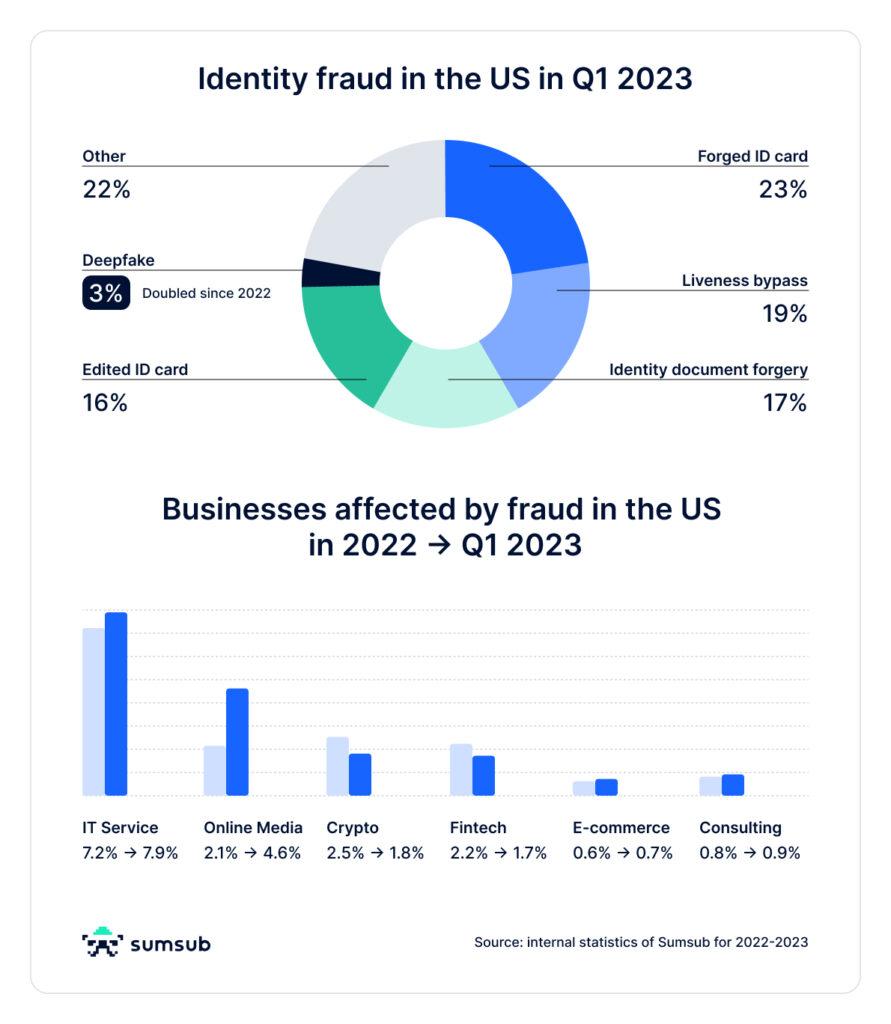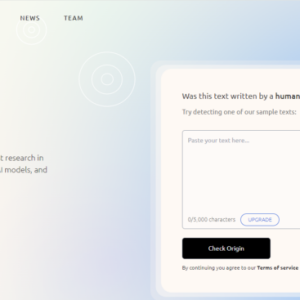In an era where data has become one of the most valuable assets, marketers must navigate the delicate balance between utilizing artificial intelligence (AI) for personalized marketing and protecting customers’ personal data from potential abuse. As AI technologies continue to evolve and become more sophisticated, concerns about privacy and data security have escalated. Marketers play a crucial role in safeguarding customers’ personal information while harnessing the power of AI to deliver personalized experiences. This article explores various strategies that marketers can employ to protect customers’ personal data from the potential risks associated with AI abuse, ensuring both trust and privacy in the digital age.
- Best AI Content Generator? A Few Great Options and When You Should Use Them
- 7 Amazing AI Tools For YouTube: Power Up Your Content Workflow & Save Time
- Graphic Design AI Tools: Top 10 Game-Changers in the Creative Industry
- ChatGPT for Lawyers: How Can This AI Tool Help Improve Your Effectiveness?
- 10 Best Cover Letter Generator Tools to Help With Your Job Hunt
Whether you’re gung ho or ambivalent about the progress of AI in the past decade, there’s one thing no one can deny: that it can be used to do nefarious deeds with something as seemingly innocuous as personal data.
You are viewing: How Marketers Can Protect Customers’ Personal Data from AI Abuse
In a world where our lives are intertwined with the digital realm, the conversation surrounding privacy, identity theft, personal data and the implications of artificial intelligence (AI) has never been more relevant.
There are plenty of great applications of AI in marketing, but we have to maintain caution with how much of it we use given its potential to be used maliciously.
In this post, we’ll look at the concerns that many individuals are grappling with as we hurtle toward an AI-driven future.
Personal Data: From Memory to Data Breach
60% of consumers are concerned about the use of AI in the business world, and they have reason to be worried.
Hackers are benefitting from AI.
Since we rely on AI for many different needs, from data protection to antivirus software, hackers will be the first to discover weaknesses in this technology.
What you post on social media can put you at risk. While we often view our digital posts as cherished memories, they can also be seen as data points ripe for exploitation. In an age where personal information is a valuable commodity, this distinction between memories and data is critical.
For example, Telekom released a video featuring “Ella” who was a future-imposed version of a young girl, derived by AI from only a few images of a younger Ella.
It shows us how little AI needs to form a very convincing copy of our voices, our appearances, and the like.
What’s the takeaway here? Seemingly innocent online posts can serve as fodder for identity theft, criminal impersonation, and financial ruin. It paints a sobering picture of a future where a few pictures posted online could be the gateway to a nightmarish scenario of stolen identities.
To that end, marketers and online advertisers need to be careful about how they are featuring spokespersons and even brands as a whole online, because we’re officially in a new period where these details can be exploited with nominal effort (thanks to AI).
The Looming Menace of Deepfake Technology
Deepfake technology, a burgeoning facet of AI, is emerging as a central concern. This technology allows malevolent actors to use a handful of pictures to create highly convincing impersonations.
From 2022 to Q1 of 2023, the number of deepfakes more than doubled:

Since deepfaking uses AI to pose as real people, it can be harmful for many reasons – from spreading misinformation to fraud.
See more : 7 Powerful AI Background Remover Tools That Help Make Designing a Breeze
For example, an individual’s voice can be cloned to manipulate friends and family into sending money under false pretenses.
The discussion serves as a stark reminder of how AI advancements – while offering tremendous potential for good – can also be harnessed for nefarious purposes. As deepfake technology becomes increasingly sophisticated, guarding against such manipulations becomes a daunting task.
Why Data Protection Is Imperative During the AI Takeover
In the era of AI advancement, data protection has become more crucial than ever.
With the resurgence of tech leaders like Sergey Brin at Google focusing intensely on artificial intelligence, the race to innovate in AI, exemplified by models like ChatGPT, intensifies. This technological leap, while exciting, also brings heightened risks, notably in the realm of cybersecurity.
AI’s capabilities can potentially be exploited for unauthorized access to personal data, increasing the likelihood of breaches.
For marketers and brands, it’s crucial to safeguard customer data for two reasons. First, they must be aware of the increased risks associated with AI’s ability to process vast amounts of data quickly and efficiently. This capability, while beneficial for customer insights and personalization, also makes data more vulnerable to sophisticated cyberattacks.
To counteract these threats, brands must invest in robust cybersecurity measures, like:
- Advanced encryption methods
- Regular security audits
- Following AI regulations
- Other AI-driven security solutions that can predict and mitigate potential threats
Additionally, you should always be open and upfront with your customers about how their data is being used. To gain their trust, you must emphasize your commitment to data security.
Educating your employees about the importance of data protection and the potential risks associated with AI is also vital. You can hold regular training sessions for your staff to help them identify phishing attempts, understand proper data handling procedures, and create strong passwords. All this can significantly reduce the risk of internal breaches.
Marketers should also always implement a privacy-first approach in their AI strategies. This means designing or using AI algorithms with privacy in mind, adhering to regulations like GDPR, and being clear with customers about AI’s role in processing their data.
What AI Abuse of Personal Data Means for Marketers
In a survey, 73% of respondents believe generative AI introduces security risks. While some futurists remain optimistic about the potential for AI to transform our lives positively, there is an equally palpable concern about the need to navigate this landscape with caution.
Peter Diamandis, a “data-driven optimist” and founder of the XPRIZE Foundation, has a lot to say about the topic. His optimism about AI’s capabilities to extend human life and reshape the world is tempered by the acknowledgment that we must “get it right” in the next decade.
The implication is clear: If we fail to manage AI responsibly, we risk descending into a dystopian future.
As marketers, we have a heightened level of responsibility in all of this. While the technology holds huge potential for transforming how we reach our audiences through targeted advertising, personalized customer experiences, and predictive analytics, mishandling user data can lead to exponentially destructive ramifications by ne’er-do-wells abusing AI.
Here are some of the most common forms of consumer data that marketers gain access to over time:
- Names
- Email addresses
- Physical mailing addresses
- Payment credentials
- Passwords
- Cookie data
See more : 15 Great and Helpful Ways You Can Use ChatGPT for Blogging!
At the end of the day, as cautious as you’ve already been with user information, it’s high time to be triply cautious.
A Few Suggestions on How to Handle Marketing Data
Because of AI, our private information is at greater risk than ever. As we move forward, we must adopt a proactive stance towards protecting the digital identities of our audiences.
Here are a few things to stay aware of in protecting your audience’s information amidst your marketing campaigns.
Data Protection
Recognizing the shift from personal memories to digital data is the first step in understanding the potential risks of AI security breaches. As we share more of our data online, we must be mindful of how this affects our lives in the digital world.
Since the average cost of an AI-related data breach is $3.6 million, businesses must implement serious data protection measures. Any misstep here can destroy the lives of thousands of people, which isn’t just horrible for them, but can spell disaster for your brand’s reputation and credibility, too.
Sure, it might help you achieve higher conversion rates if the forms on your website have one or two fewer fields for each prospect to fill out, or having them complete a reCAPTCHA. But trust us on this one, the added measure of security is well worth the cost of a few less conversions.
In addition to educating your employees, educate your customers, too. Let them know that there are many things they can do to keep their data safe (even on your website!), like:
- Implementing strong passwords
- Using two-factor authentication
- Regularly reviewing online privacy settings
It’s up to you to aid your users in maintaining healthy habits to protect their data better.
Responsible AI Development
Since the data protection concerns stem from AI itself, it’s up to the developers to create secure technology.
Responsible AI development is a huge demand: 52% of companies use some responsible AI software. That said, tech companies, policymakers, and society as a whole must consider the ethical implications of AI and ensure that it benefits humanity rather than harms it.
With major tech figures like Sergey Brin dedicating their efforts to AI, it’s evident that machine learning will continue to shape our world. Preparing for an AI-driven future involves staying informed, advocating for responsible technological practices, and actively participating in discussions about its impact on users.
Other Ways to Handle Marketing Data
Here are a few more key suggestions for marketers to protect their audience’s information:
- Prioritize Consent and Transparency: Clearly inform your audience about what data you’re collecting, how it will be used, and whom it will be shared with. Transparency builds trust and ensures compliance with data protection laws like GDPR and CCPA.
- Implement Data Minimization: Collect only the data that is absolutely necessary for your marketing campaigns. Excessive data collection not only increases the risk of data breaches, but also can lead to customer distrust.
- Regular Data Audits and Compliance Checks: Regularly audit your data collection and storage practices and make sure they align with the latest data protection regulations and industry standards. This also helps in identifying and fixing any vulnerabilities in your system.
- Invest in Robust Cybersecurity Measures: Employ state-of-the-art cybersecurity tools to safeguard your data. This includes firewalls, anti-virus software, and encryption technologies. And don’t forget to regularly update these tools!
- Educate Your Team: Conduct training sessions for your team about the importance of data protection and make sure they understand the best practices for handling and storing data securely.
- Use Data Anonymization Techniques: When possible, anonymize the data. This means removing personally identifiable information from your datasets, making it difficult for hackers to trace data back to individual users.
- Have a Response Plan for Data Breaches: Develop a comprehensive plan for responding to data breaches. This should include steps for containing the breach, notifying affected individuals, and working with authorities if necessary.
- Leverage AI Responsibly: Use AI tools that have built-in ethical guidelines and data protection measures. The AI systems you use should be from reputable providers and have been vetted for security.
- Involve Data Protection Officers: If feasible, involve data protection experts or officers in your team. They can provide specialized knowledge on how to handle sensitive data and remain compliant with legal standards.
- Monitor Third-Party Vendors: If you use third-party vendors for data processing or analytics, make sure they also follow strict data protection practices.
Last Thoughts on the Protection of Personal Data with AI
Data protection is getting trickier. There’s more and more reasons for people to give up their personal data and, therefore, more risks of it falling into the wrong hands. Marketers are in a tough position since we rely on a certain amount of user data, but we also have responsibility not to mishandle that information once we have it.
Take every precaution when implementing new marketing campaigns. Think twice about how quick and convenient you want to make your conversion funnel. If its at the cost of keeping peoples’ data safe, then it’s not a wise idea. Or, ask yourself if it’s truly necessary to acquire as much personal data from your prospects as you’re asking for. The less info you ask for, the less risk the user is assuming, which can incidentally help you gain their trust.
Be smart about it. Be conservative and protective of the data you obtain. Most of all, have your customers’ safety at the top of your mind.
For more insights and lessons about marketing, check out our Marketing School podcast on YouTube.
That’s a wrap on “How Marketers Can Protect Customers’ Personal Data from AI Abuse” We hope you’ve found a trove of useful insights and fresh perspectives. Your opinions and ideas matter to us—join the conversation below and share your take! Hungry for more tech insights? Dive into our diverse collection of articles where innovation meets practicality. Discover More AI Softwares.
Stay in the loop with the latest in AI and tech – your journey into the digital future continues at hiddenshard.com.
#Marketers #Protect #Customers #Personal #Data #Abuse
Source: https://hiddenshard.com
Category: AI





